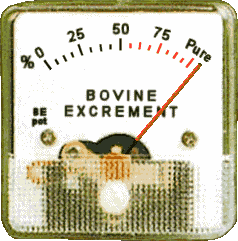MRG
Give me a museum and I'll fill it. (Picasso) Give me a forum ...
- Joined
- Apr 9, 2013
- Messages
- 11,078
.snip.... good sounding breakfast
I think some folk, like myself, are more sensitive to blood sugar spikes/plunges than others. It's brutal, so consider yourself fortunate if you don't know what I'm referring too.
Great comment.
I used to think that folks who claimed sugar spikes were a little daft in the head. Till I changed how I ate and realized I had them every day and thought it was normal! I never understood how I could eat, stay hungry and have zero energy other than short bursts of thoughts that went in circles. I was a hummingbird running from one sugary food to the next, believing that was normal. Ate that way most of my life, how silly.

